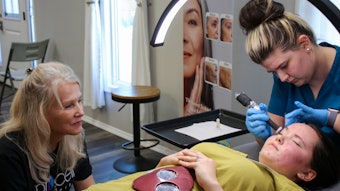From workplace distraction to conduit for stalking, harassment and other criminal activity, the rise of social networking has its supporters and its detractors. Although some companies lament the greater bandwidth demands, virus infiltration, identity theft issues, productivity drain and possible co-worker harassment that can pummel computer networks and employees, others point to the teamwork and productivity enhancement nurtured by having social networking as a mental break.
Some employers have embraced social networking as a method of assessing the true character and traits of aspiring employees. On the flip side, for some skin care facilities, the ever-expanding world of Facebook has encroached into the workplace with devastating professional and personal consequences.
But can the likes of Facebook, Twitter, LinkedIn and FourSquare be used in the workplace in a way that doesn’t expose supervisors and skin care facilities to moral and legal liability? Can the freedom of the Internet that workplace bullies, would-be Lotharios, and just plain lazy folks are emboldened by be controlled and channeled into worker productivity? The answer is a resounding “yes.”
The key is to recognize the uses and abuses facilitated by social networking, and identify the steps that should be taken to control this behavior in the workplace. Following are several tips that you can implement in your skin care facility today.
Have clear policies. Very specific policies need to be in place that govern the usage of the Internet and social networking sites. Although some skin care facilities may find it easier to just ban access altogether, this is akin to throwing the baby out with the bath water. A middle-of-the-road approach is probably more appropriate for most employers. Have team members sign Internet policies indicating that they have read, understood and had the opportunity to ask questions about them.
Educate employees. Make sure that employees, as well as supervisors, understand what is expected of them as far as social networking conduct within—and when referring to—the workplace. While you’re at it, reinforce sexual harassment-related issues and their relevant consequences, even when they’re taking place in the virtual world.
Team members that bash the workplace online create a troublesome experience for all involved. Although free speech and whistle-blower protections exist, the laws vary from state to state. Employees may not be on as solid footing as originally thought when confronted with disparaging comments they posted online about an employer or a fellow worker. Take steps to reassure them that such online networking etiquette expectations are in place to protect them, as well as the skin care facility.
Take technological precautions. Keep one step ahead of the nefarious forces of the Internet. Continuously update antivirus protection, implement mandatory password changes and make sure strong firewall protections are in place. Web-filtering systems are also available to enable skin care facility owners to restrict access based on a number of different options, including time frame, such as during breaks or lunchtime, or a time limit, such as one hour per day.
Monitor usage. Monitor Internet usage and, in particular, social networking within the workplace. Be sure that team members understand that their computer interaction is being recorded. This oversight is vital as the skin care facility may bear civil or criminal responsibility for some of its staff members’ actions.
The democratization effect of technology has diffused communication channels and put more power in the hands of individuals. Employers need to be properly equipped to address social networking issues in the workplace.
Richard Weinblatt, EdD, The Cop Doc, is a former police chief, ex-criminal justice professor and past police academy director who is an expert on police, crime and safety topics. A speaker and book author, Weinblatt regularly writes articles and has been interviewed in the media including CBS News, CNN, MSNBC and The Washington Post.










